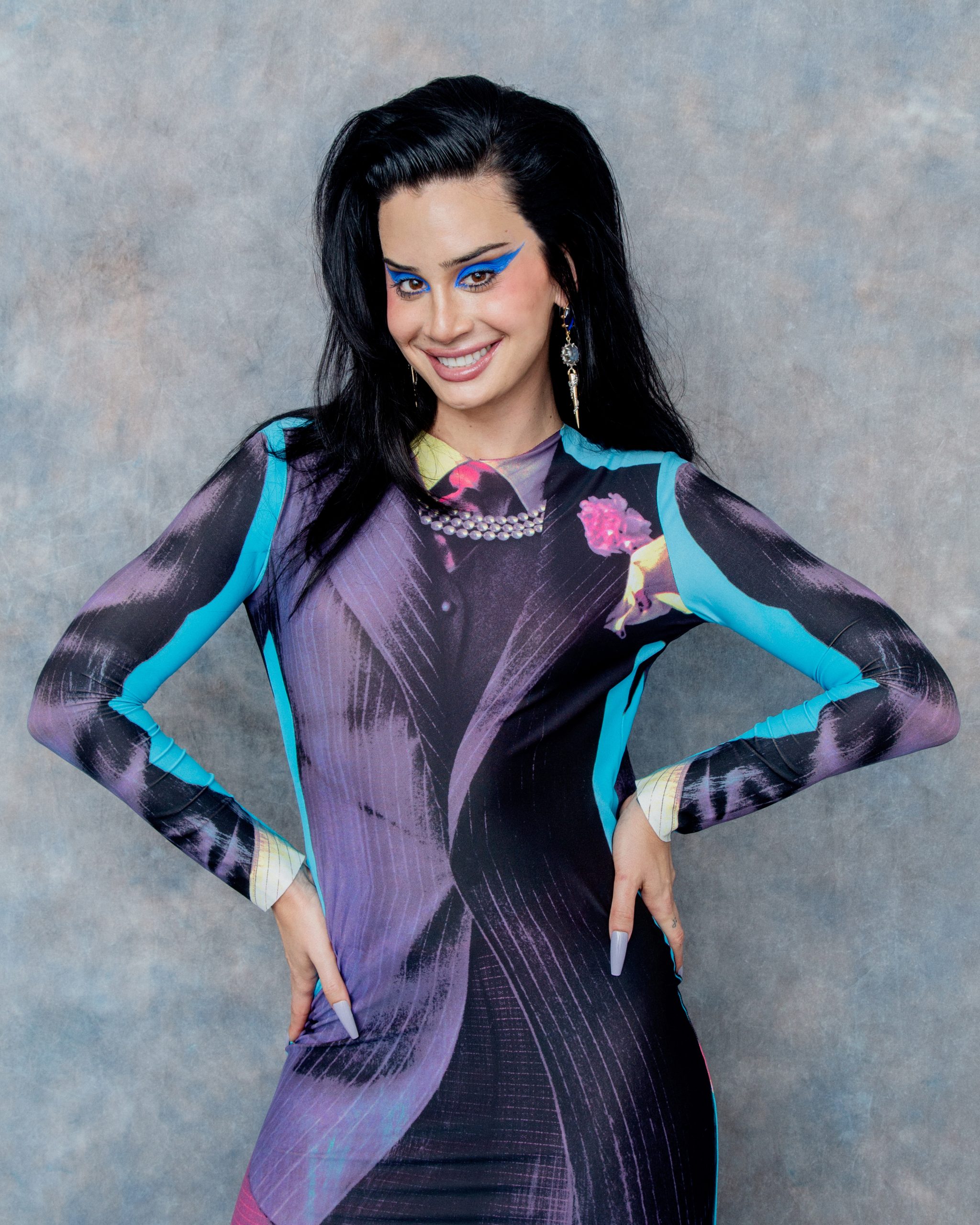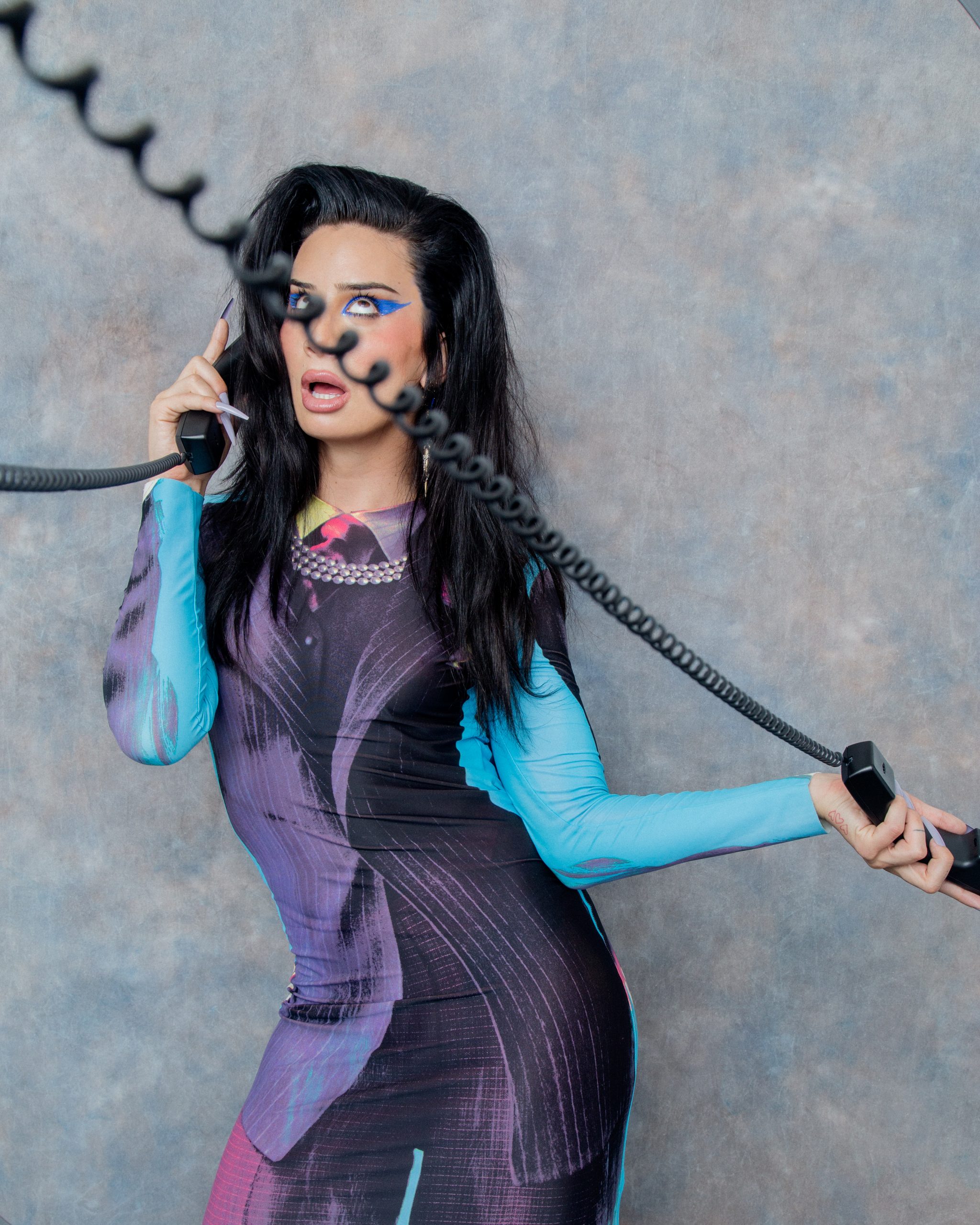Story // JoAnn Zhang
Photos // Eric Helgas
CD + Styling // Phil Gomez
Glam // Rory Alvarez
It is the dawn of Virgo season, and aspiring trans popstar Mel is turning a critical eye to some of the most polemic figures and topics in trans discourse. She’s known for her hyperpop-adjacent electronica sound, and her outrageous antics onstage— at one show, she stripped completely naked, to let her audience know that, hey, it’s okay to dance, because I’ve already done the craziest thing imaginable, so no one’ll think you’re the weird one. She’s an entertainer through and through: her music has the absorptive, stimulating quality of a fast paced movie, or a well-curated Tik Tok feed. But while her latest single “She Culture” is wrapped in that same essential, engaging quality, it is also an address to modern trans issues she feels she cannot turn away from, such as the disunity between cis women and trans women, and also J.K. Rowling, who siloed herself from mainstream feminists as an outspoken anti-trans figure.
J.K. Rowling holds a special place of hurt for Mel and much of the queer community. Harry Potter was an entire generation’s bedtime story hero, a young boy who, being different, found a true home in a magic world. To Mel (and other fans), this seemed like a metaphor for their world, from the secrecy of ‘closeted’ magic, to the discovery and homecoming to a different, magical world (the LGBTQ community). For the author of such an idyllic story to shun trans people, was not only a destruction of the solace and comfort those books brought, but a representation of how cis women often see trans women as “other” to themselves, though they are both the primary victims of the misogyny and hatefulness of the patriarchy.
That common ground of experience between trans and cis women, and all nonconforming peoples, is what Mel terms “she culture,” the culture that arises from existing and living outside the golden circle of the patriarchy’s acceptance. Yet because some— particularly cis women— view trans women as outsiders to this culture of femininity, as invaders of feminine experience, a sinister stereotype is budding for trans women, as malicious non-women invading locker rooms and stealing gold medals. In the song, Mel plays with becoming the villain they want her to be, satirizing that very persona. Ultimately the song is an edification on the experience of being a trans woman, delineating the tumultuous ebb and flow of connection and solidarity with cis women, and describing the unique DNA of the terrifying and beautiful trans female experience.
How did J.K. Rowling come to be part of the song?
Harry Potter is very queer coded to me. It’s about a boy who’s different and doesn’t know why. And then he finds a community of people that are just like him. Like, that sounds a lot like a gay person from Alabama moving to New York, which in my case, was my truth. So for me to be inspired by Harry Potter and then realize that the girl who created it doesn’t think I deserve safety— it was really sad. I added a song my upcoming EP is called “J.K. Rowling.” And basically, I’m describing an experience of being bullied in fifth grade, where someone is throwing money at my face— they’re throwing actual quarters at my face—and they’re chanting, this is for your sex change.
A lot of JK Rowling’s points about how trans women are not real women is that they are not sexualized like as cis woman is, therefore, they don’t have the same experiences as cis women. And my point of the song is, while they are not the same experience, they’re pretty similar and traumatizing nonetheless. They are both centered around sexualization. Like, I didn’t know that I was trans, some kid with a bunch of quarters had to tell me when I was a kid. Like, yeah, we didn’t have the exact same experience. But we had similar ones, why doesn’t mind count? And why are you comparing them? So that’s kind of why I brought her into this. It’s not a direct attack on J.K. Rowling as much as it is me highlighting one example to show we are not that different.
What does “she culture” mean, exactly?
She culture is the experience of life of anyone who has felt like they’ve had quarters thrown at their face, or had not felt comfortable walking into a room full of men, somebody who doesn’t feel okay in their skin, or someone who has been made to feel like they are not enough. I’m finding all of these similarities between women, non-binary people, gay men, where we all have these similarities, and they all root out from misogyny. And for me, she culture is kind of like, what happens to us after misogyny has its way with us, after we become adults? And then what does our life look like because of that? Are we not comfortable walking to our car alone at night? Or do we second guess putting on a certain top? Do we conceal our bodies? It’s kind of our navigation through the world as a femme presenting person, or anyone that’s different. Anyone that challenges the patriarchal view.
Why do you think femininity is so feared in a patriarchal society?
I’m in a pursuit to discover that exact answer. I think it dates back to thousands of years ago, when money and property became a thing. Marriage was like, here’s my wife for a bunch of cows, or whatever. I think it goes back to the idea of strength and stuff. I don’t know, I think that question just opens up to more questions, which is why I guess I dedicated at least seven songs so far to it.
Do you think the ideal situation for gender is for gender to simply not exist, or for our existing gender binaries to be on equal footing?
I’m happy when the gender waters are muddied. I feel a lot of discomfort, and I think it causes a lot of chaos, when things are so rigorous, when we have rigorous stereotypes to adhere to. I’m reading a book called Sapiens, which talks about the history of humankind, dating back like 3 million years ago till today. And it’s really interesting to see how gender literally does not come into question until very recently in the grand scheme of things. It’s like when we start wanting and when we start putting value on things, that’s when gender becomes really important because then all of a sudden, you have to protect those things that you want and then wars happen, and then the men go to war and the moms stay at home. Then all the sudden you have these really old gender stereotypes and it’s like, Boo like not that long ago, we were full-on monkeys vibing out.
Yet there’s also a sense of delight and satisfaction that one gets from embodying these ideals.
Yes, absolutely. And I’m a testament to that. So as much as I’m like, I would like gender waters to be muddied, that’s just not the truth of where we are right now. And also, I know that I feel my most at peace, at ease, happy, when I’m experiencing those euphoric moments of the gender I present in, so I guess even from my answers, you can see my conflicting ideas.
CHECK OUT OUR EXCLUSIVE PHOTOS AND NEW MUSIC VIDEO FOR ‘SHE CULTURE’ BELOW:
Top, BATSUOMI (DOORS NYC). Shorts + EARRINGS, CHANEL (NEW YORK VINTAGE). Shoes, GUCCI.
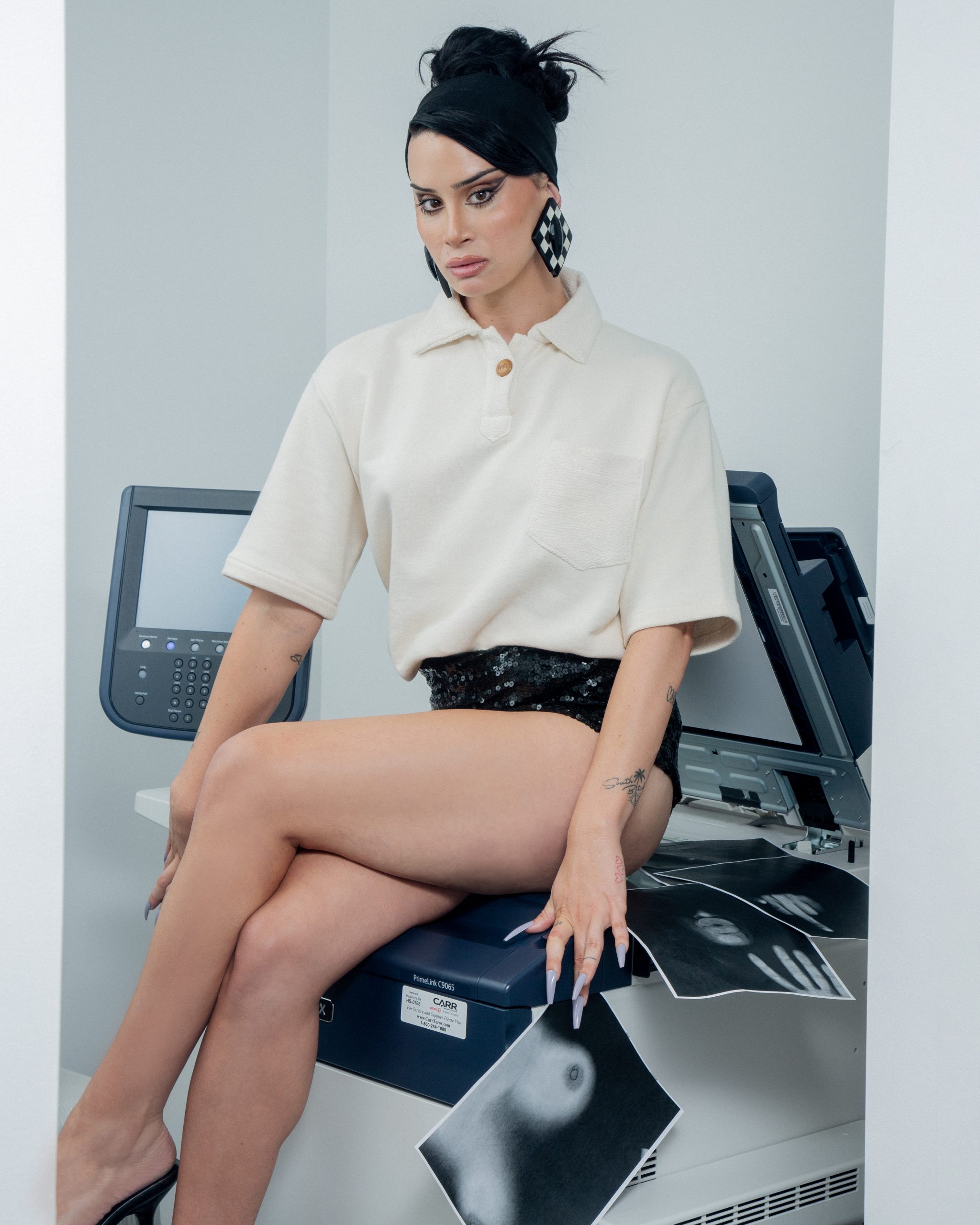
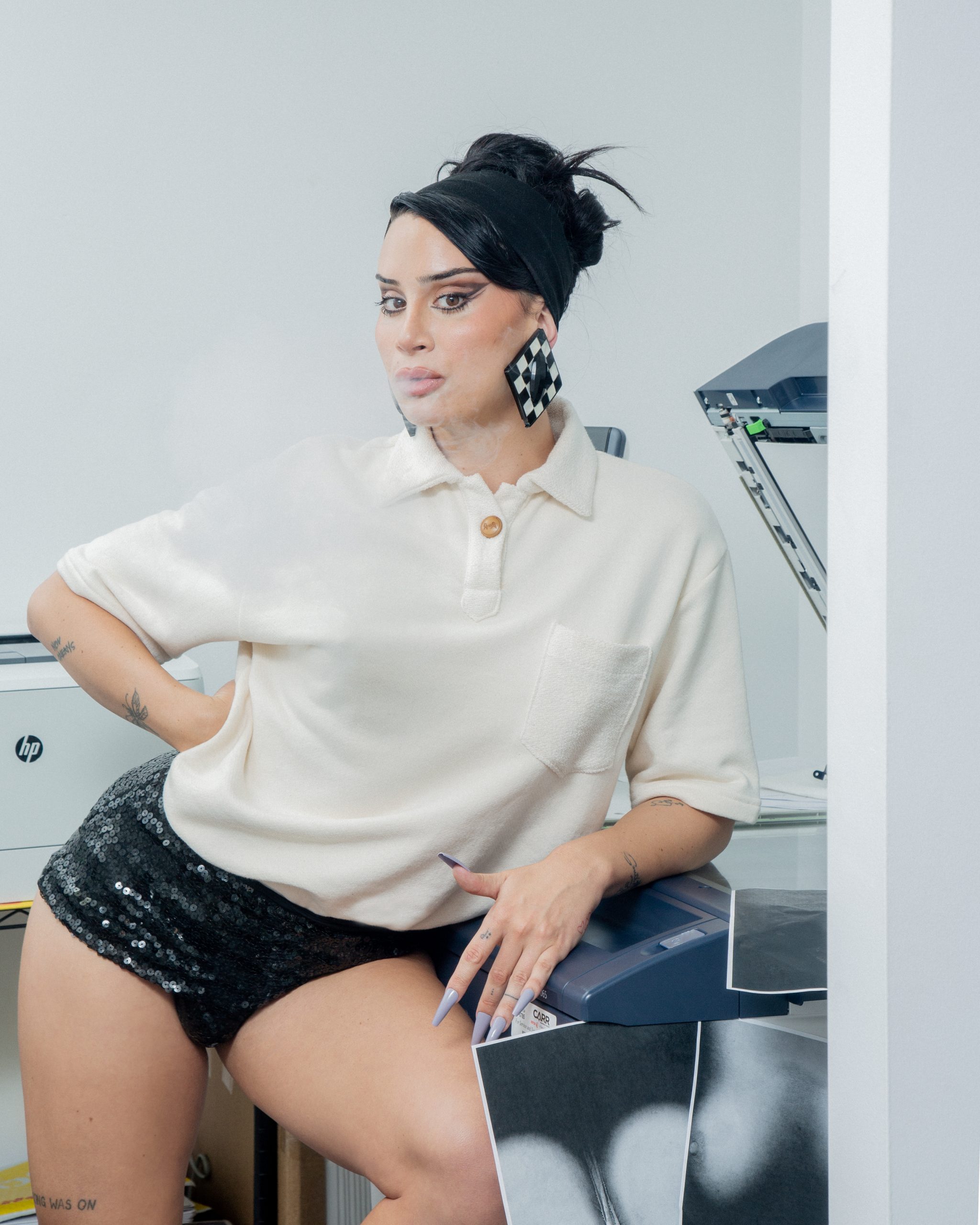
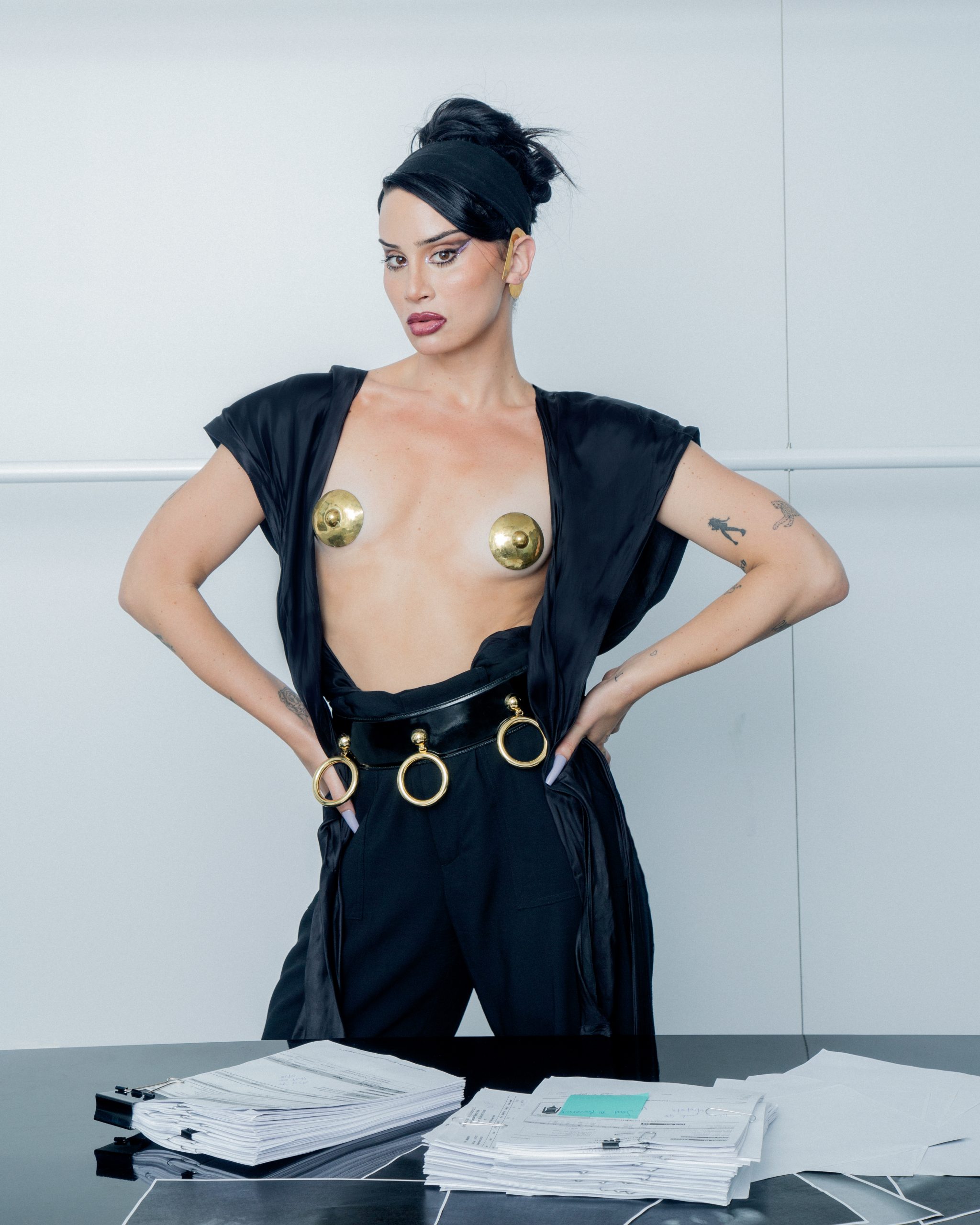
Ear cuff , BDODI (Doors NYC ). Jumpsuit, COMME DES GARCONS (New York Vintage). Gold Pasties, NEW YORK VINTAGE. Belt, MOSCHINO (New York Vintage).
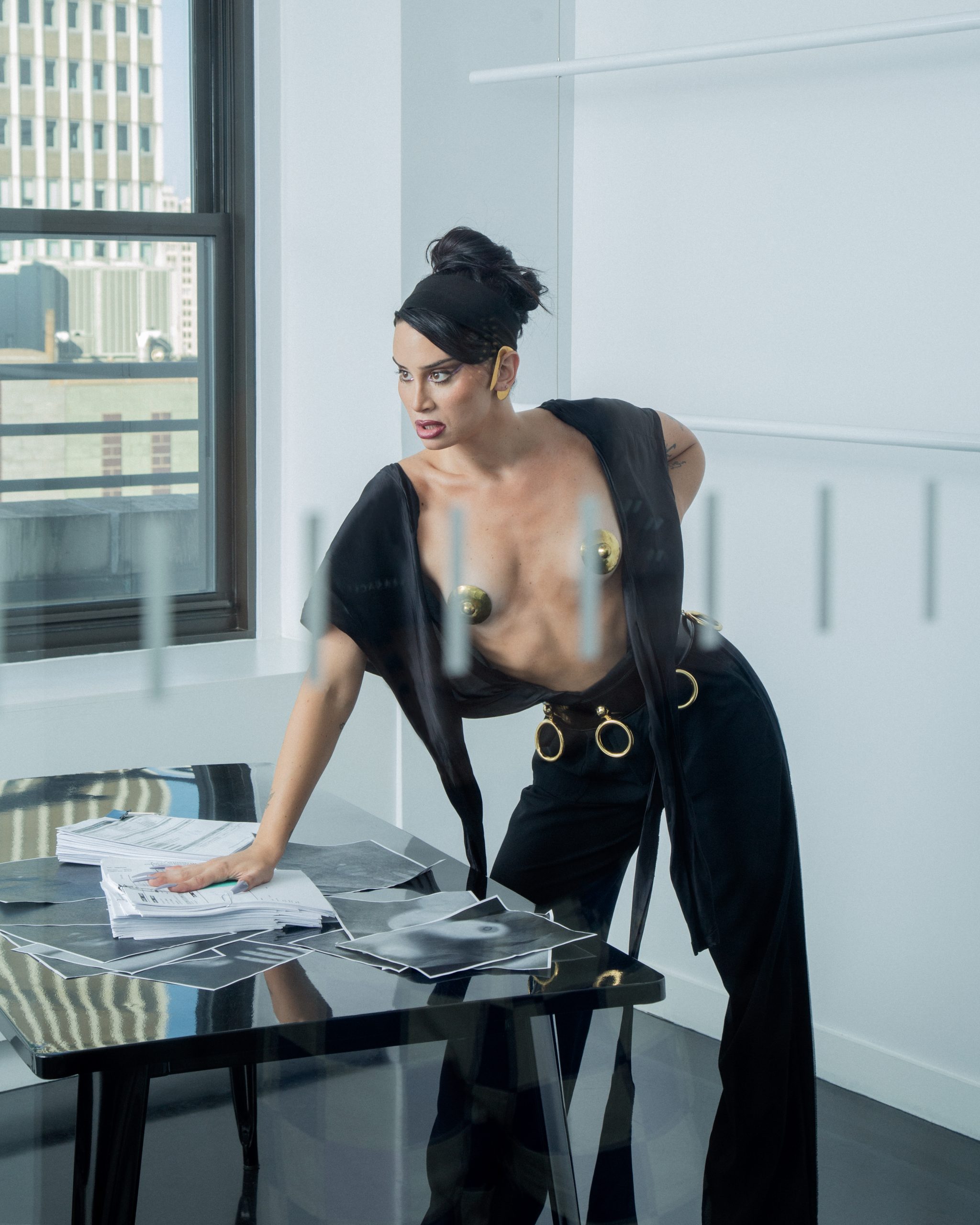
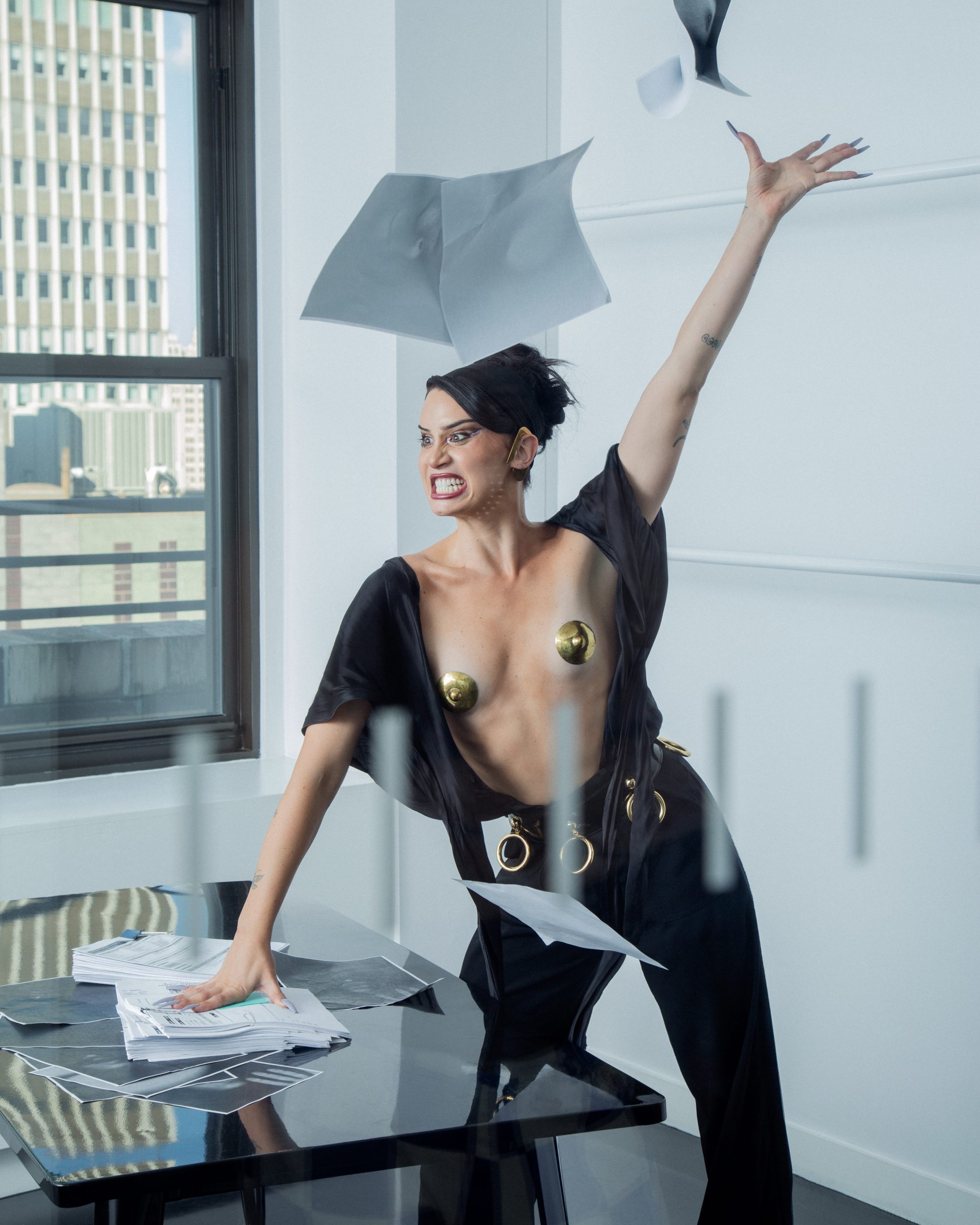
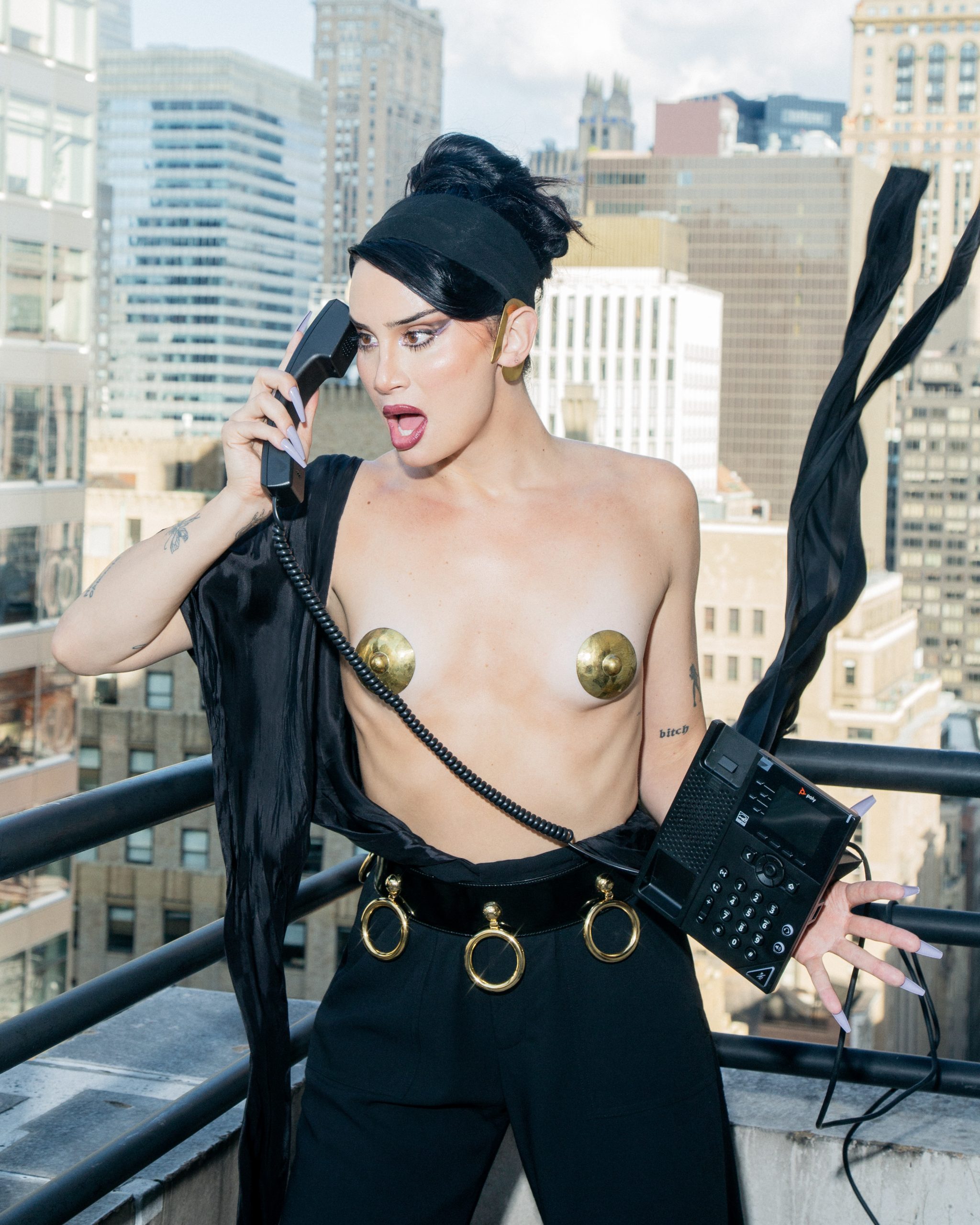
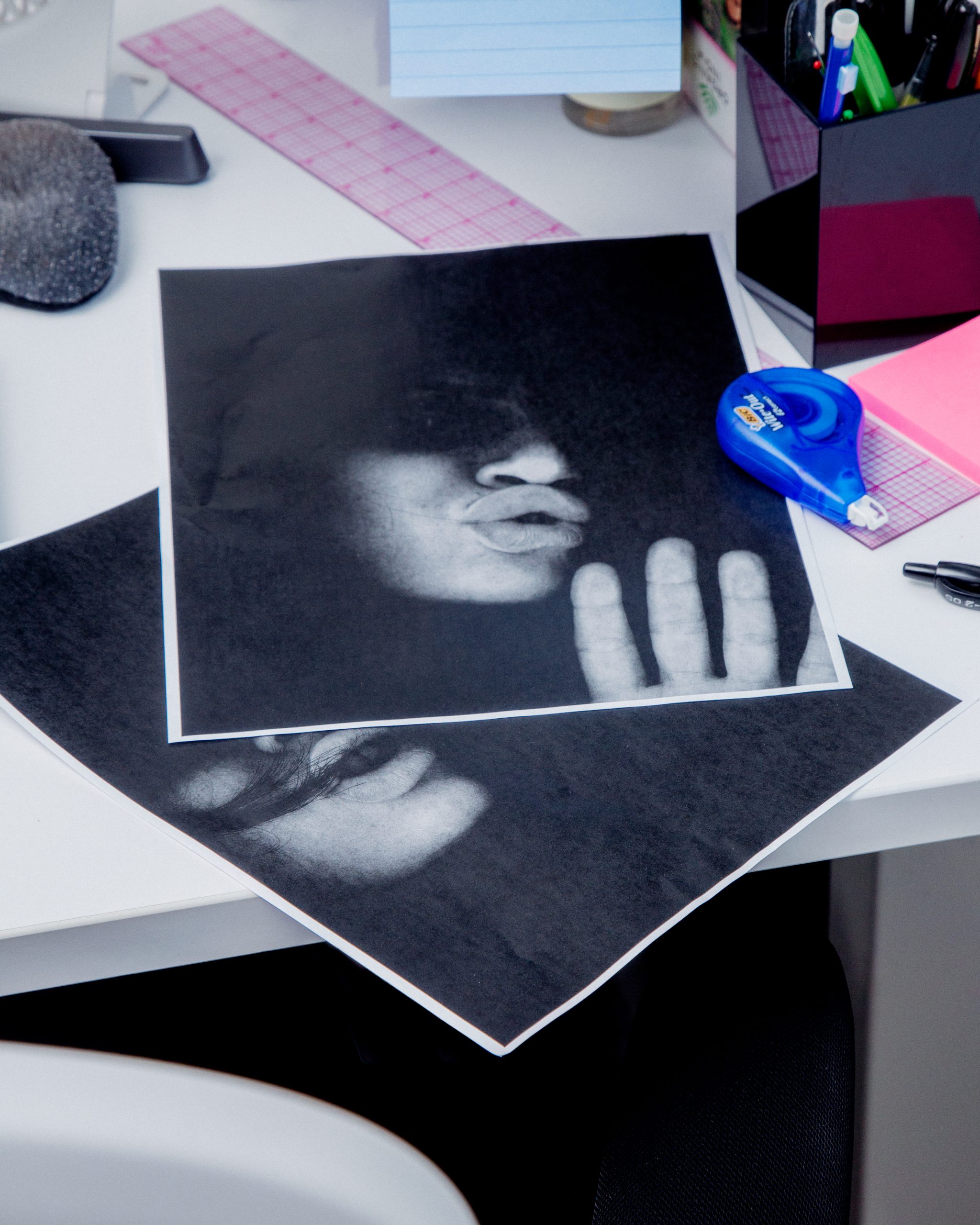

Jewelry, JAAGRAVII (Doors NYC ). Blazer, NOSENSE (Doors NYC ) Eyewear, GUCCI, (New York Vintage). Corset, Archive (New York Vintage). Panties, HONEY BIRDETTE. Shoes, SYRO.
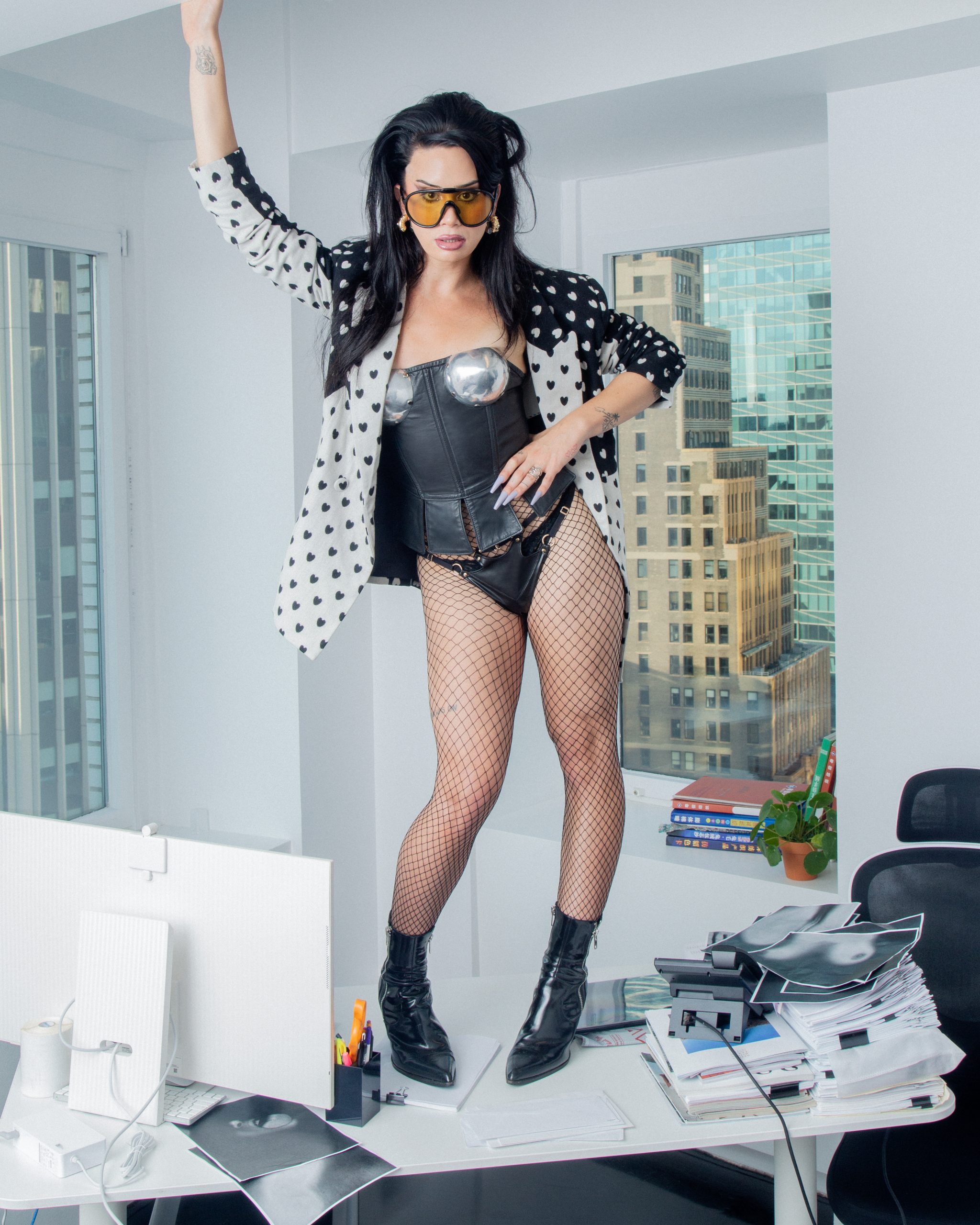
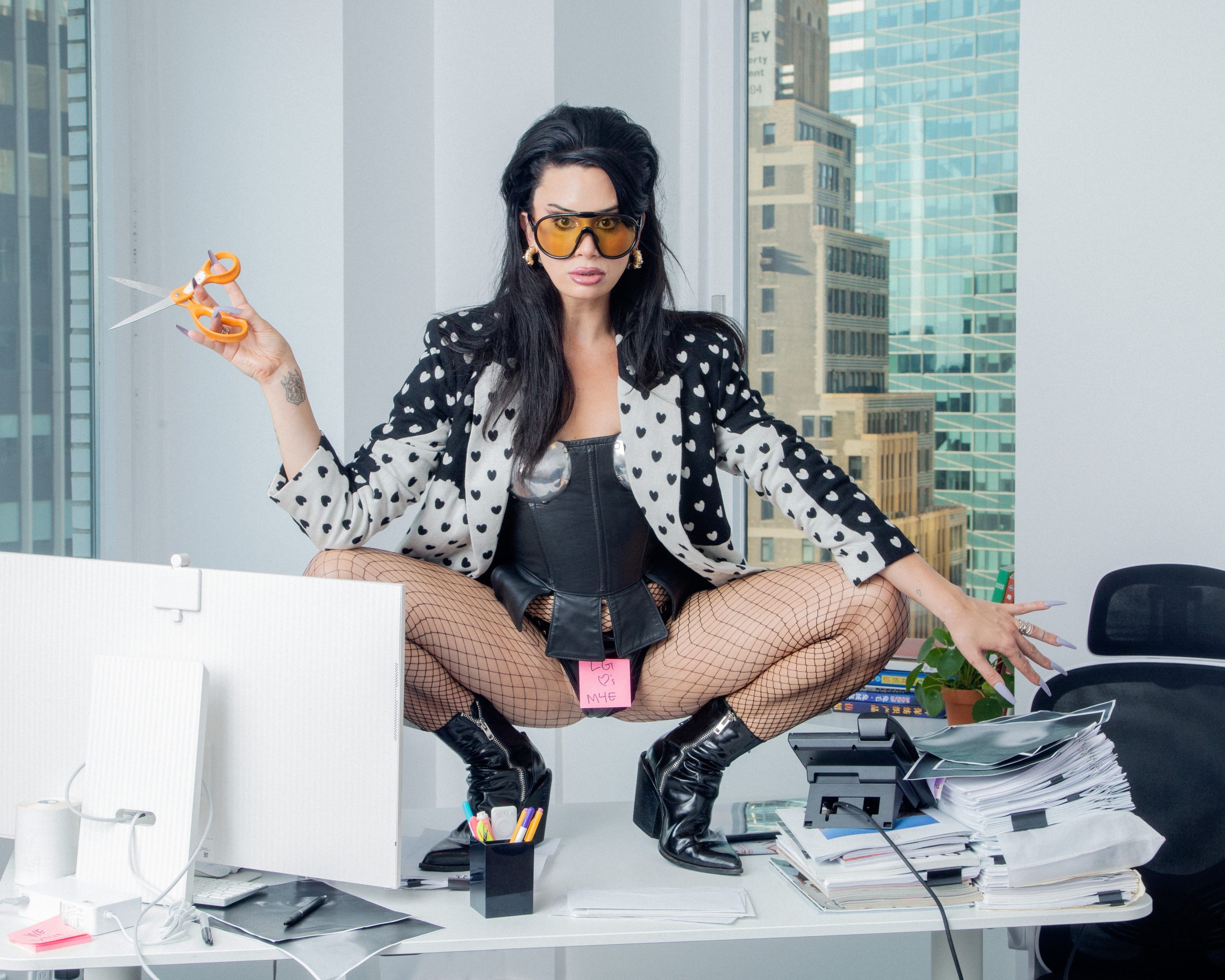
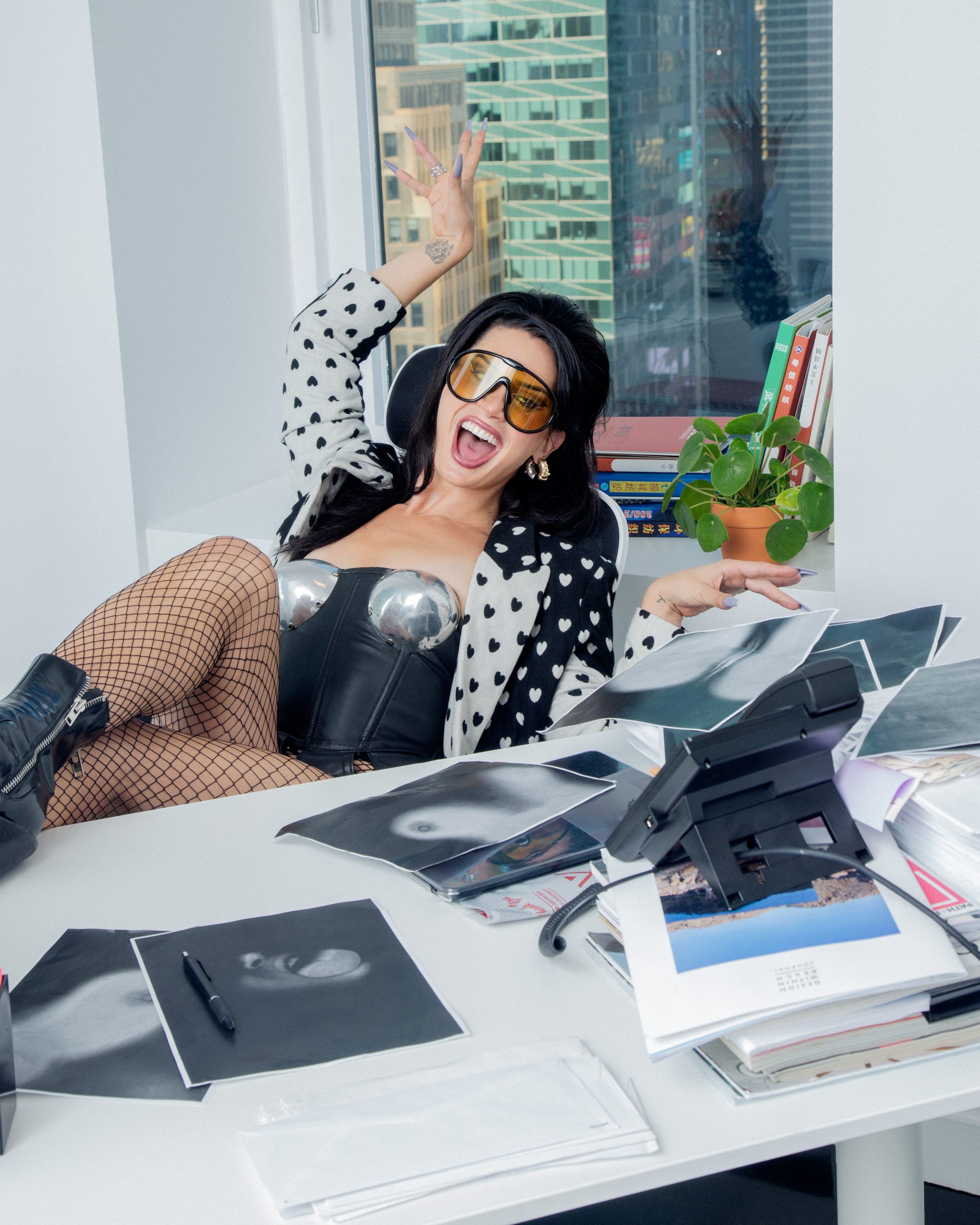
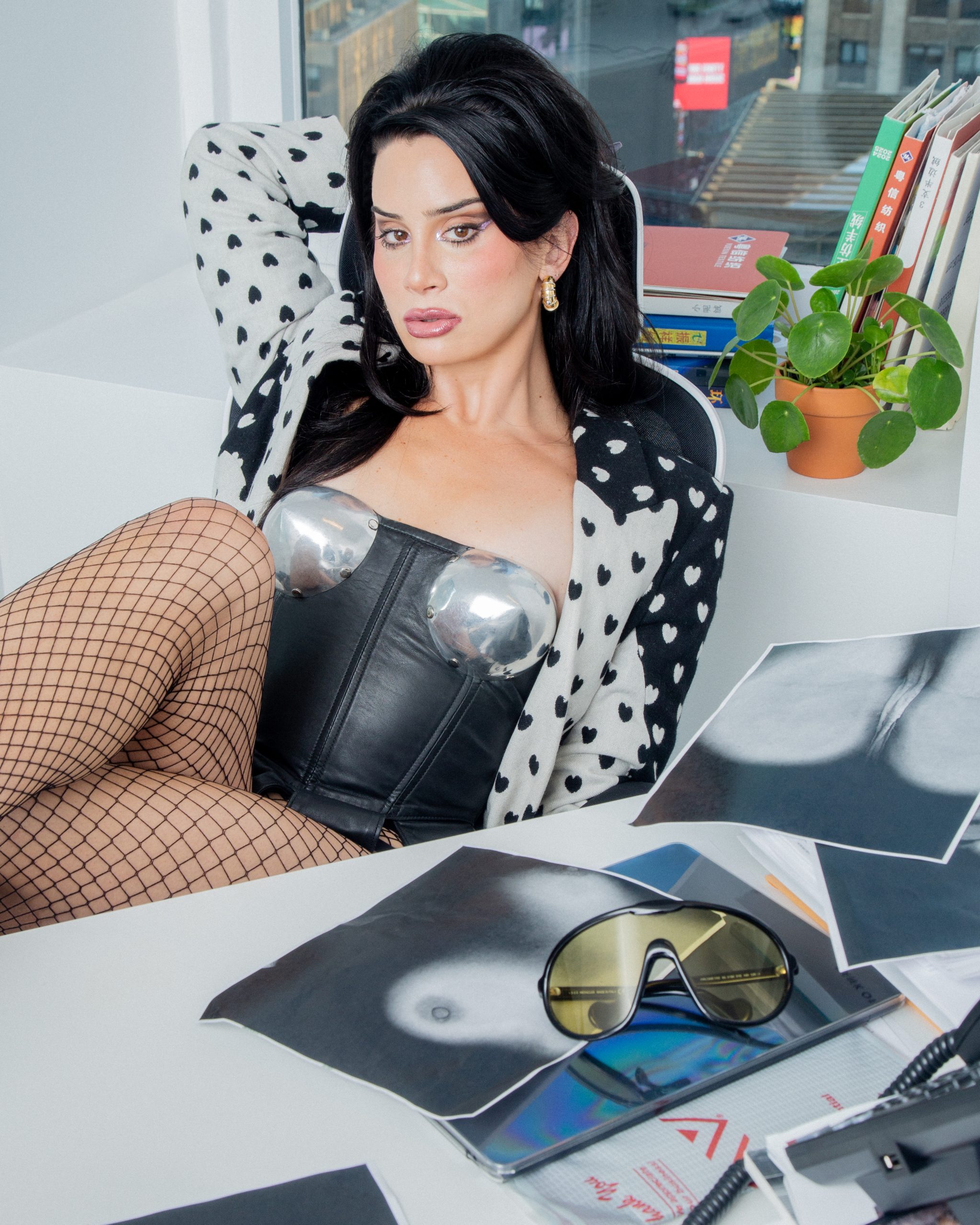
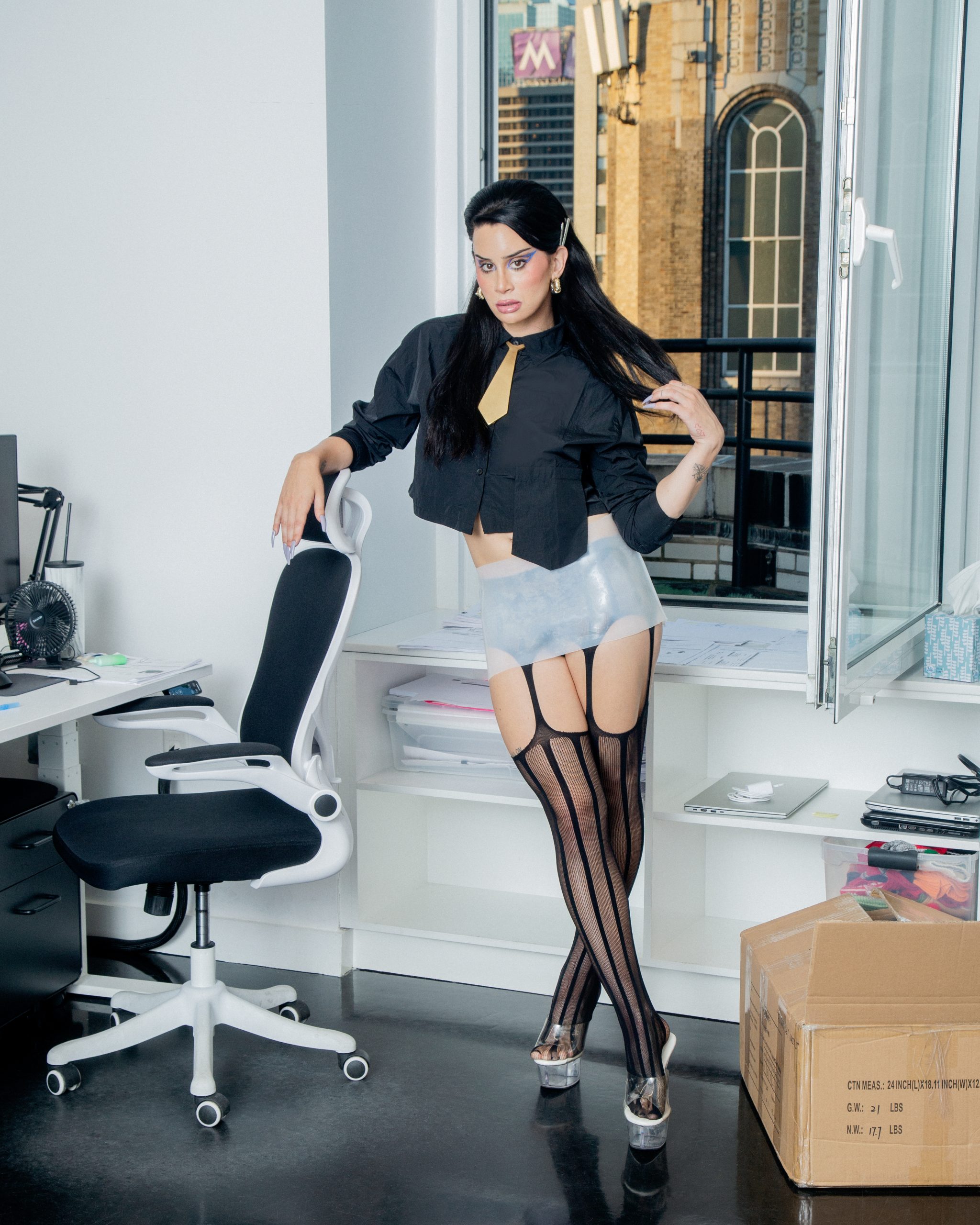
Top, MARZOOD and (Doors NYC). Skirt, VIKTORIA MARCHEV (Doors NYC). Shoes, PLEASERS. Gold tie, Archive (New York Vintage).
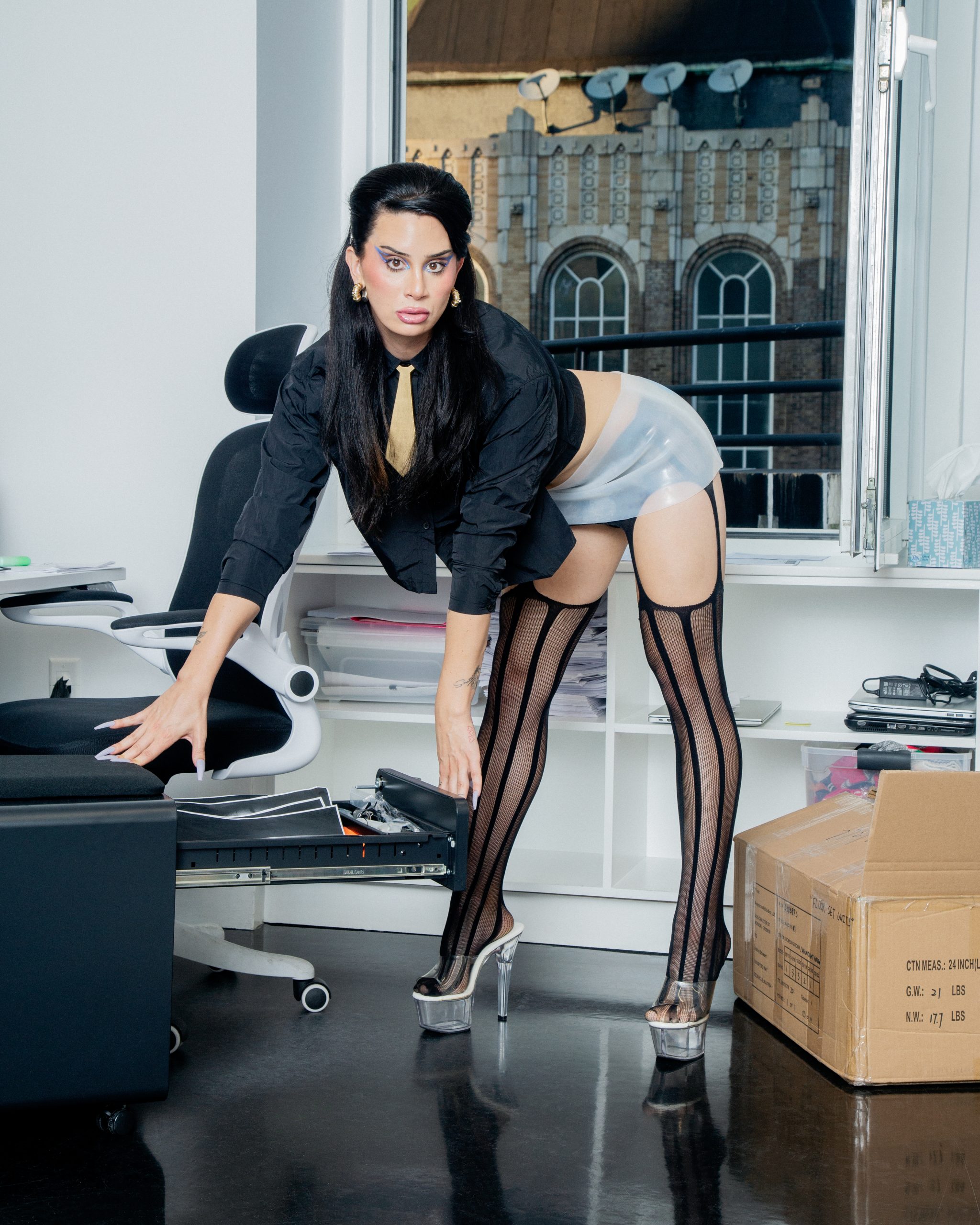

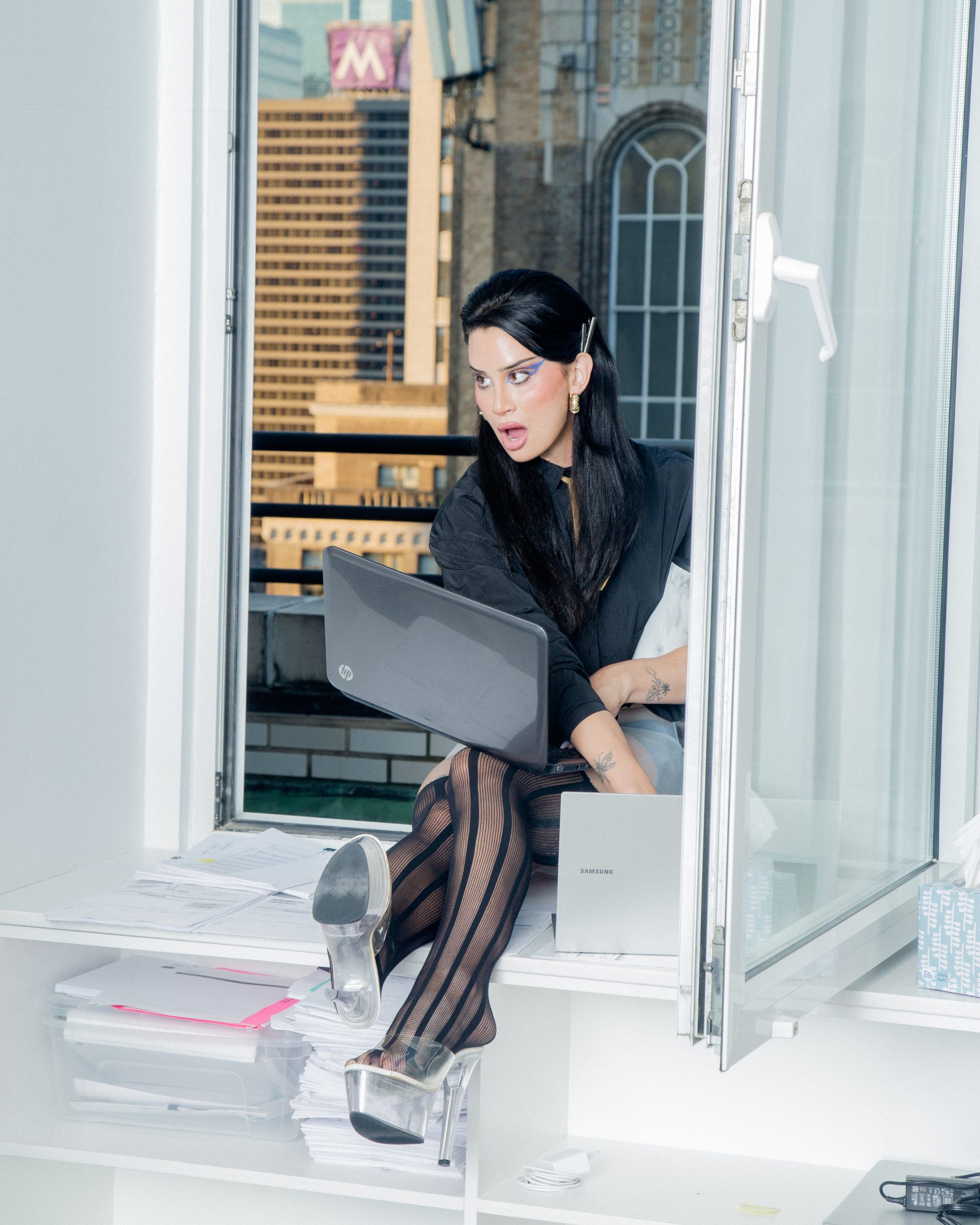
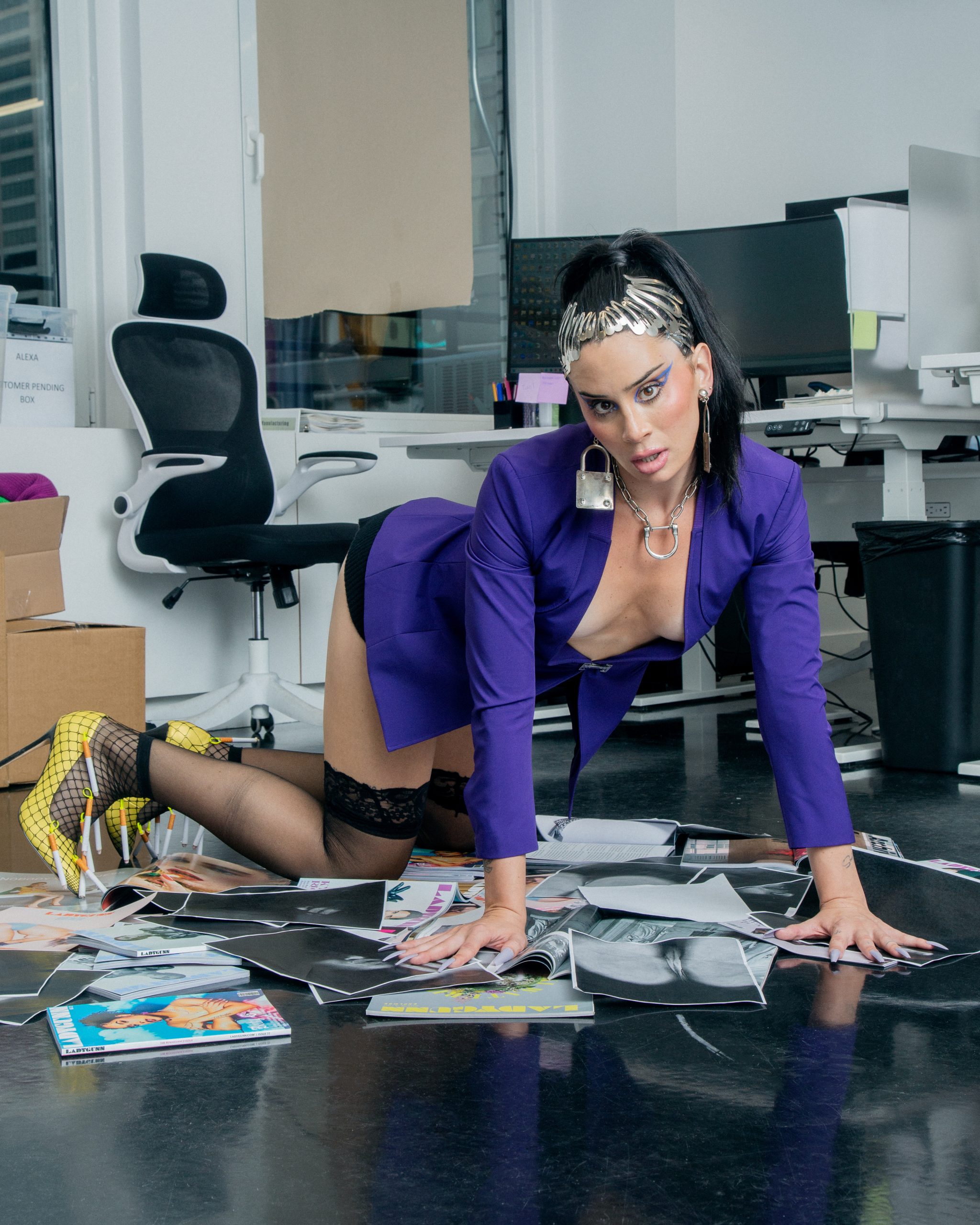
Blazer, MQUEYT (Doors NYC) Shorts, DI.CC.VI (Doors NYC). Necklace, BDODI (Doors NYC). Earrings, Archive (New York Vintage). Thigh highs, HONEY BIRDETTE. Shoes, Stylist own.
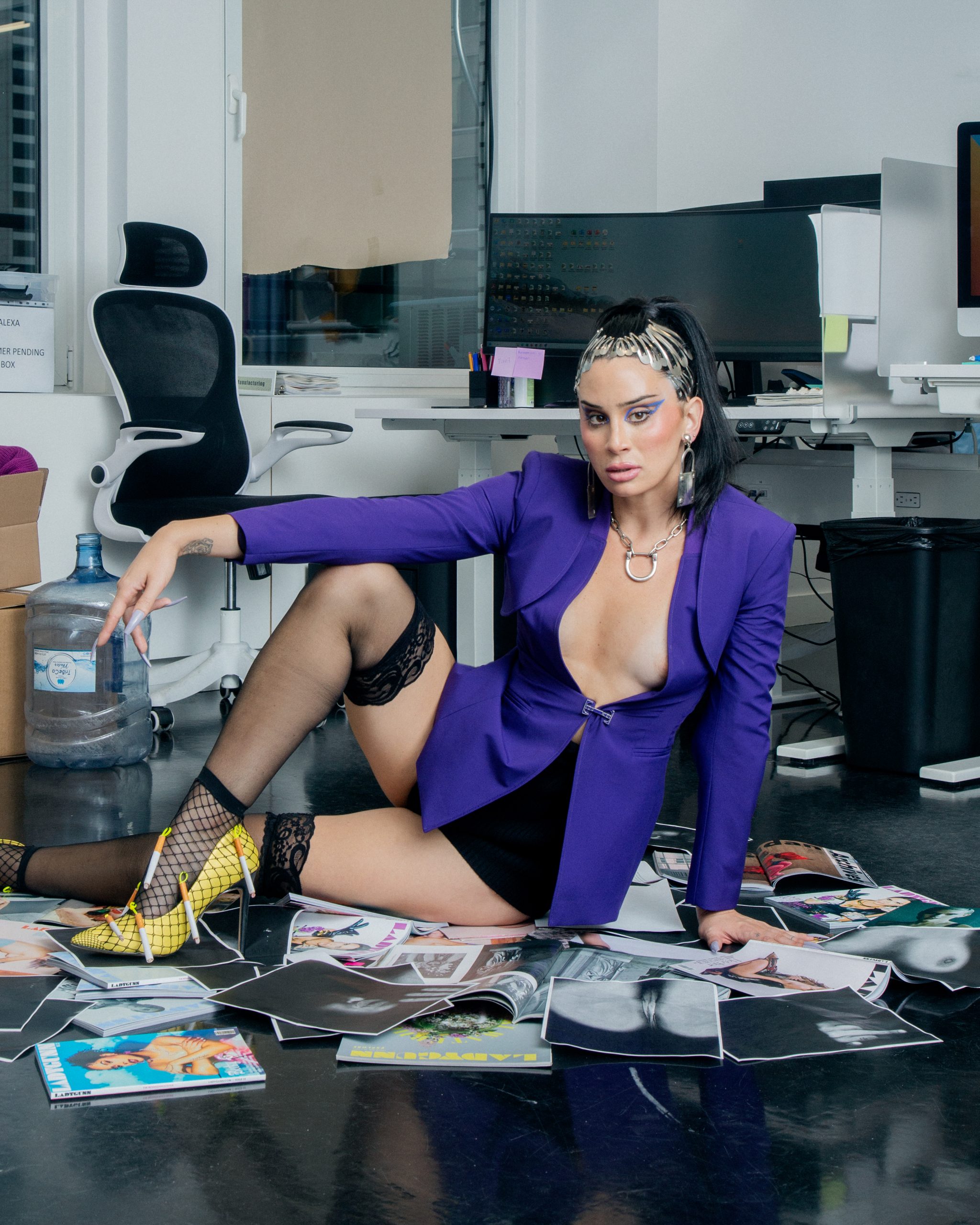

Earrings, JAAGRAVII (Doors NYC ). Dress, Jean Paul Gaultier. Shoes BENEDETTA BOROLI (Doors NYC).
